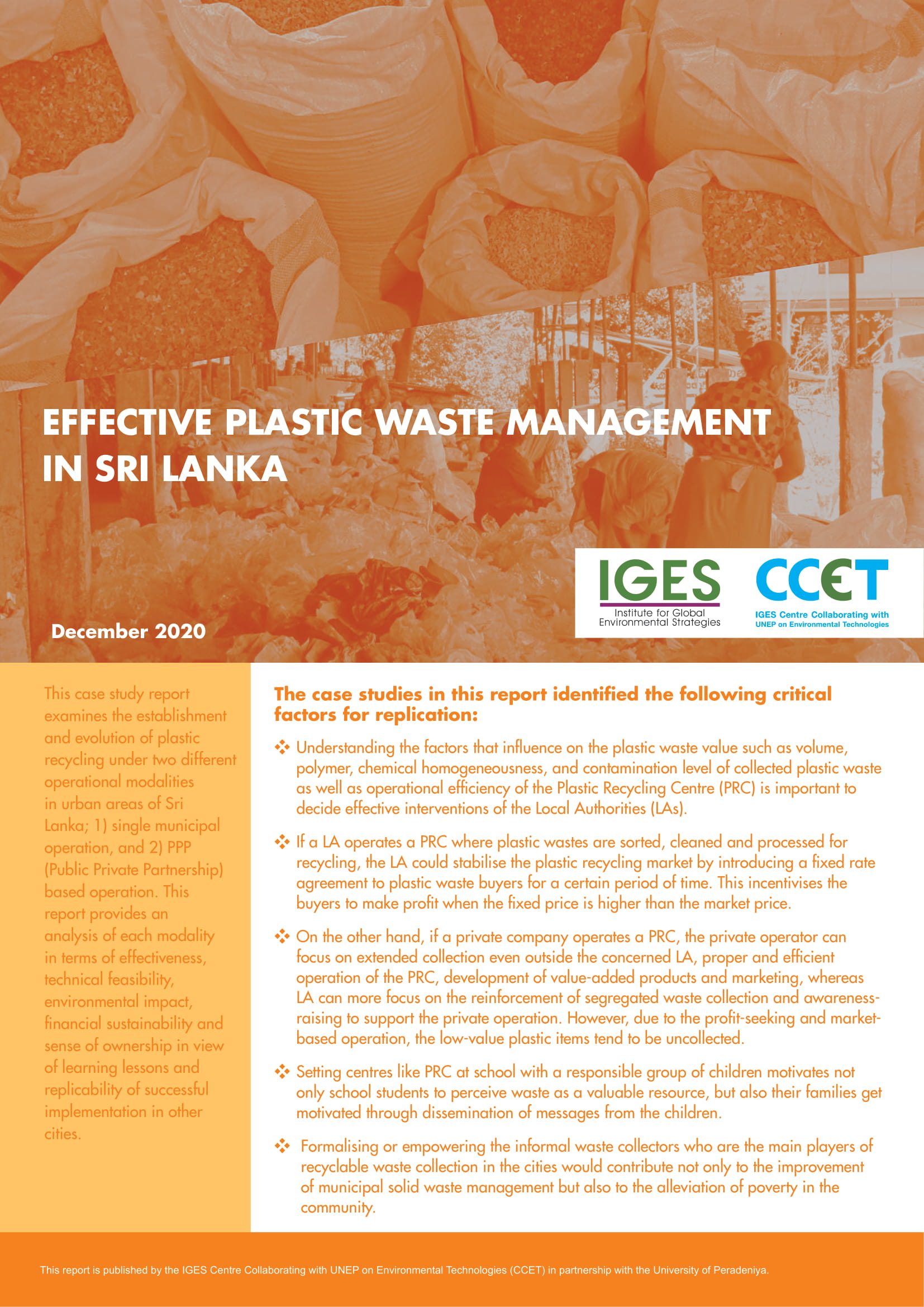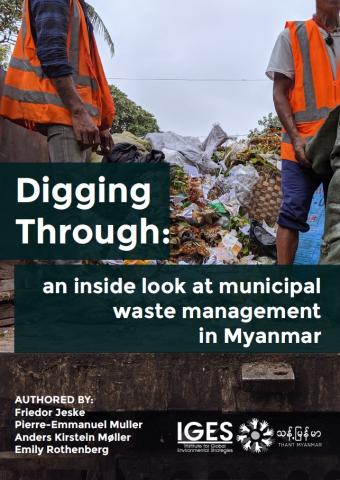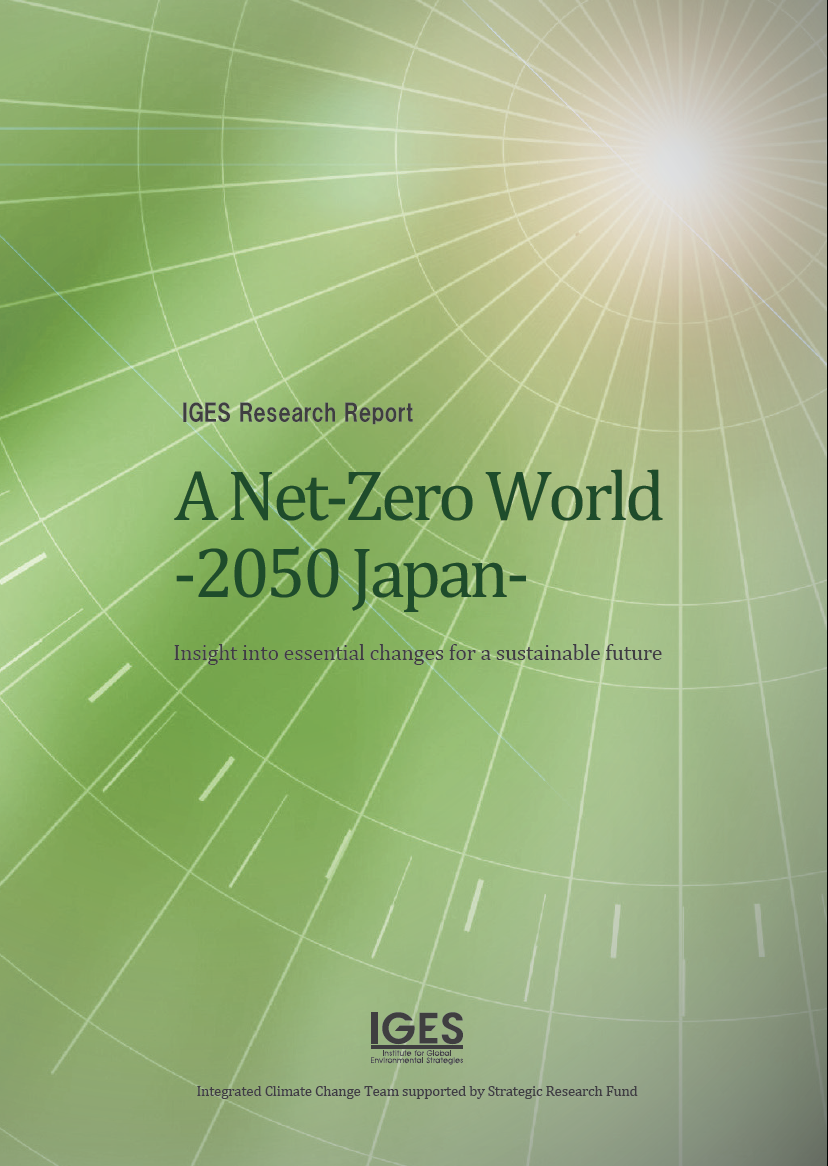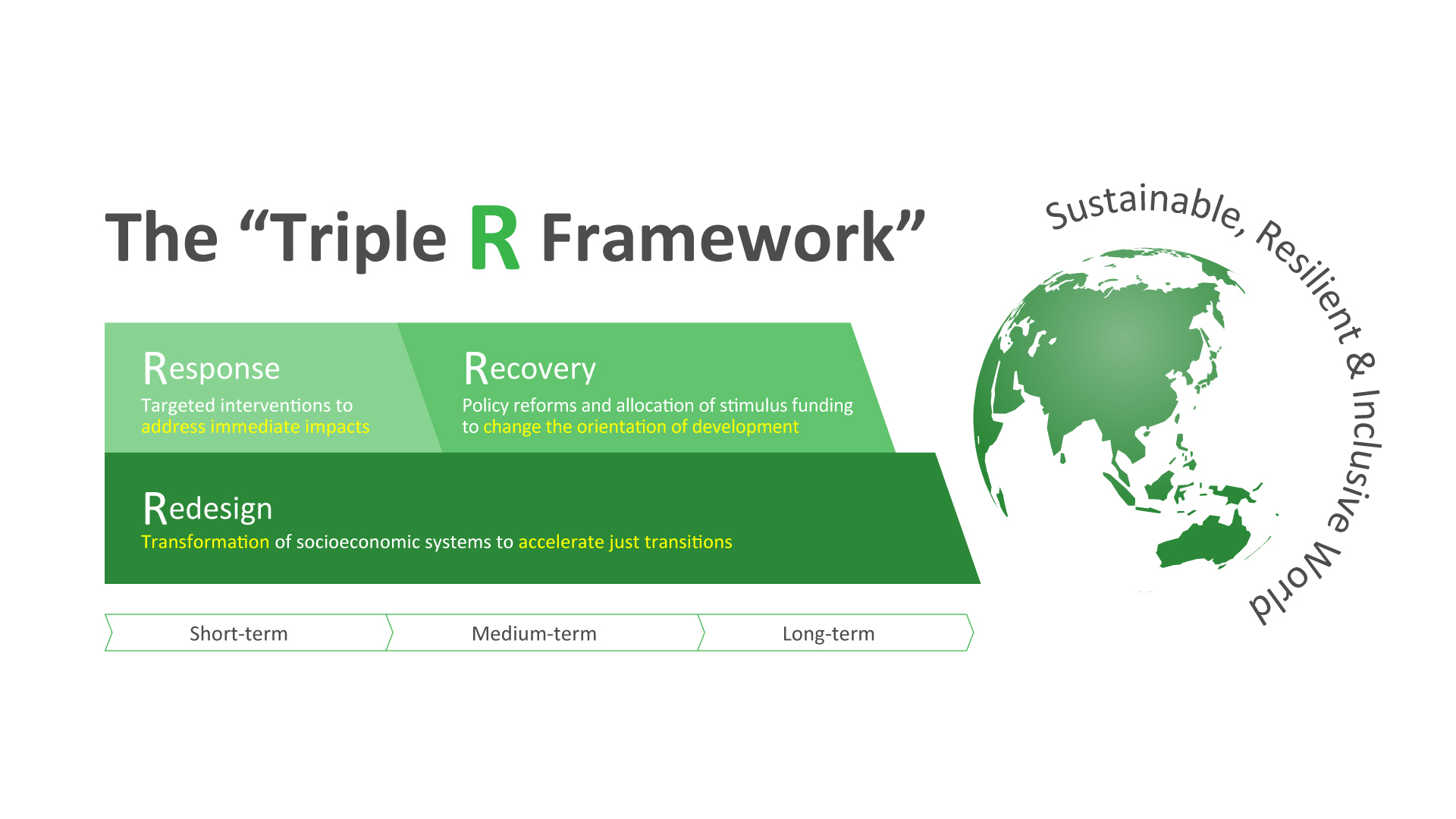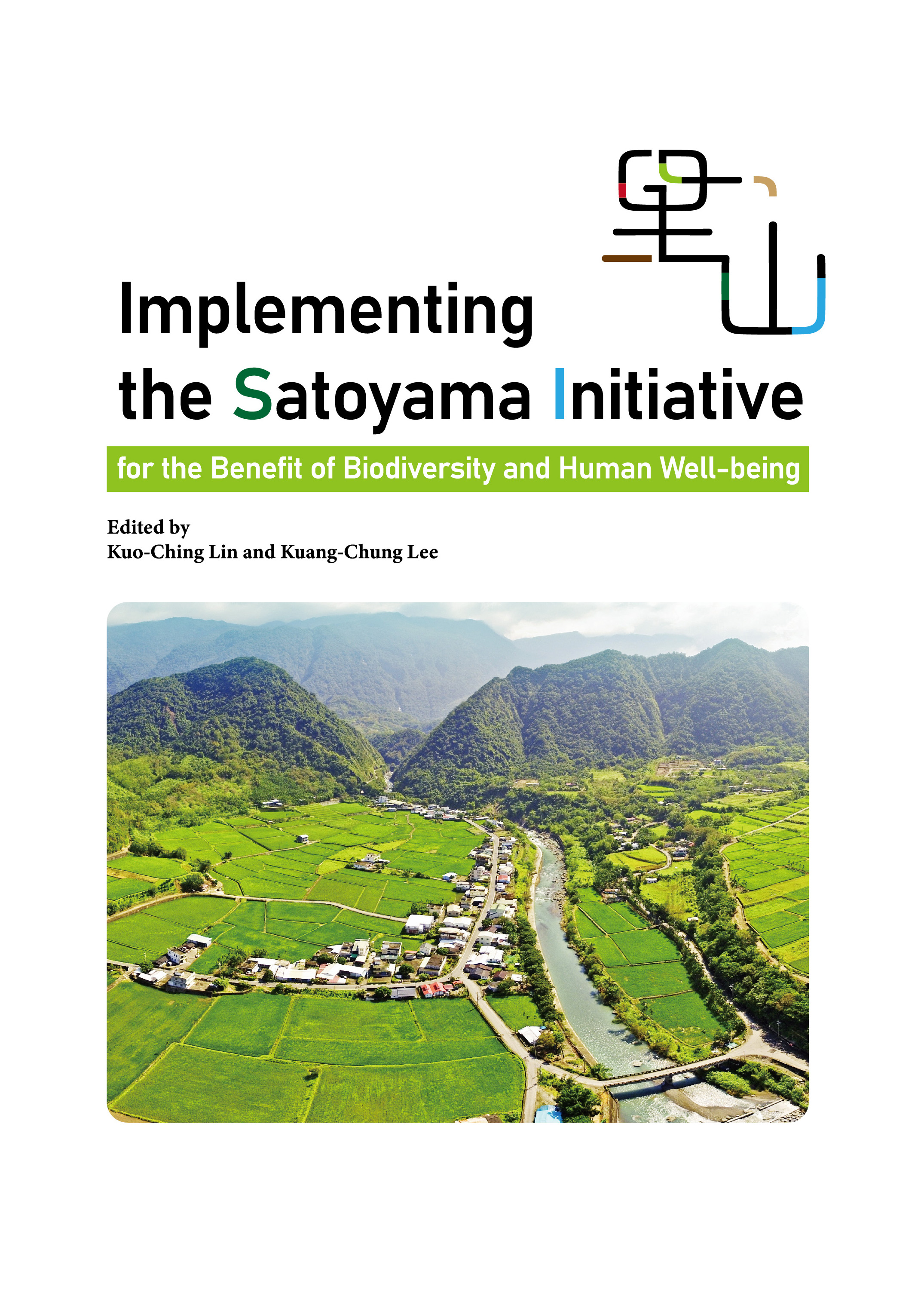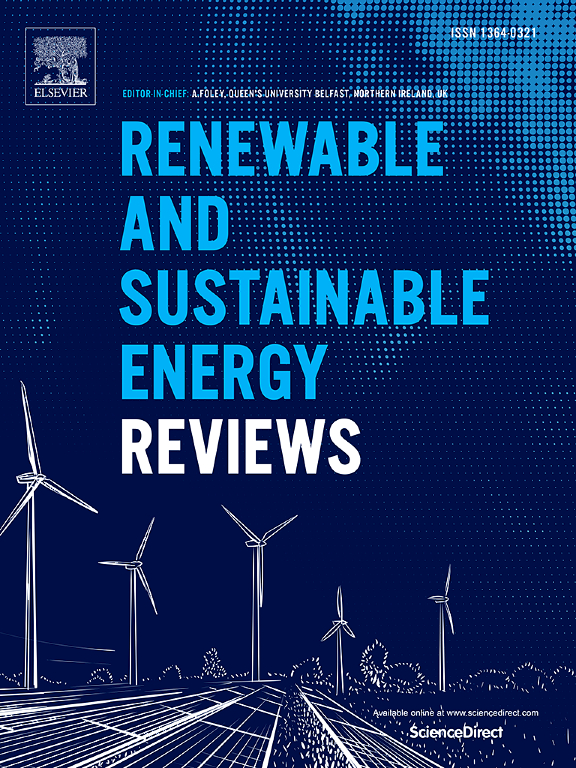Effective Plastic Waste Management in Sri Lanka
This case study report examines the establishment and evolution of plastic waste recycling under two different operational modalities in urban areas of Sri Lanka; 1) single municipal operation, and 2) PPP (Public Private Partnership) based operation. This report provides an analysis of each modality in terms of effectiveness, technical feasibility...

